
The Charming Cotswolds: England's Pastoral Paradise
The Cotswolds, nestled in the heart of England, is a quintessential countryside destination renowned for its rolling hills, meandering rivers, and honey-colored stone villages. This Area of Outstanding Natural Beauty spans six counties, each offering unique landscapes and historical treasures. Visitors are greeted by scenic walks through lush meadows, enchanting woodlands, and picturesque market towns that seem frozen in time. Strolling through the charming villages of Bibury, Bourton-on-the-Water, and Chipping Campden, tourists can admire traditional thatched-roof cottages, ancient churches, and timeless architecture. The Cotswolds is also home to grand estates and gardens, such as Blenheim Palace and Hidcote Manor Garden, which provide a glimpse into England's rich history and horticultural heritage. Outdoor enthusiasts will find numerous trails and paths perfect for hiking and cycling, while food lovers can indulge in local delicacies at cozy pubs and tearooms. Whether you're exploring historical sites, savoring local cuisine, or simply soaking in the serene landscape, the Cotswolds offers an idyllic escape from the hustle and bustle of modern life.
Local tips in The Cotswolds
- Visit during spring or autumn for the best weather and fewer crowds.
- Wear comfortable walking shoes as many attractions are best explored on foot.
- Try local specialties like Cotswold cheese and traditional afternoon tea.
- Consider renting a car to easily explore the spread-out villages and countryside.
- Don't miss the weekly farmers' markets for fresh produce and handmade crafts.
The Charming Cotswolds: England's Pastoral Paradise
The Cotswolds, nestled in the heart of England, is a quintessential countryside destination renowned for its rolling hills, meandering rivers, and honey-colored stone villages. This Area of Outstanding Natural Beauty spans six counties, each offering unique landscapes and historical treasures. Visitors are greeted by scenic walks through lush meadows, enchanting woodlands, and picturesque market towns that seem frozen in time. Strolling through the charming villages of Bibury, Bourton-on-the-Water, and Chipping Campden, tourists can admire traditional thatched-roof cottages, ancient churches, and timeless architecture. The Cotswolds is also home to grand estates and gardens, such as Blenheim Palace and Hidcote Manor Garden, which provide a glimpse into England's rich history and horticultural heritage. Outdoor enthusiasts will find numerous trails and paths perfect for hiking and cycling, while food lovers can indulge in local delicacies at cozy pubs and tearooms. Whether you're exploring historical sites, savoring local cuisine, or simply soaking in the serene landscape, the Cotswolds offers an idyllic escape from the hustle and bustle of modern life.
When is the best time to go to The Cotswolds?
Iconic landmarks you can’t miss
Broadway Tower
A romantic 18th-century folly on the Cotswold escarpment, once a beacon, a printer’s retreat, and a Pre-Raphaelite escape, now a museum with panoramic views across 16 counties.
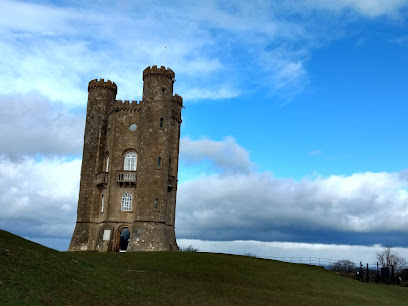
National Trust - Bibury
England's most beautiful village, where honey-stone cottages meet the River Coln in timeless Cotswold charm.
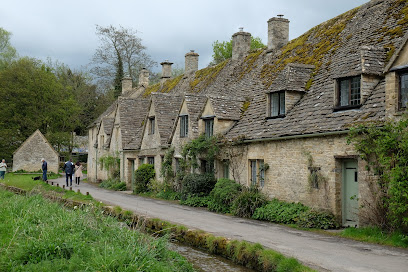
Folly Bridge
Medieval fortress gateway transformed into Oxford's most iconic river crossing, where history, literature, and rowing heritage converge.
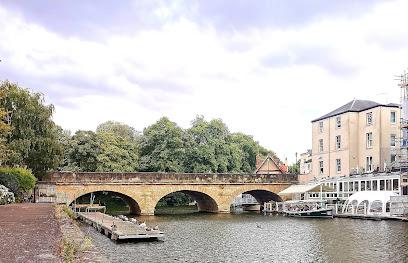
Belas Knap Long Barrow
A 5,000-year-old Neolithic mystery carved in stone, where ancient rituals and timeless Cotswolds views converge.
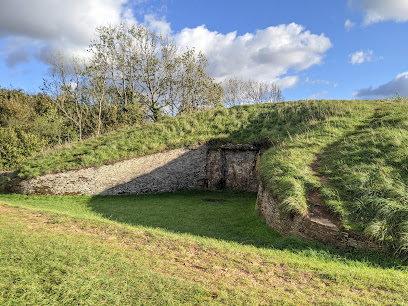
Uley Long Barrow (Hetty Pegler's Tump)
Step into a 5,000-year-old Neolithic tomb in the Cotswolds: explore Hetty Pegler’s Tump, a chambered long barrow with a hauntingly peaceful atmosphere.
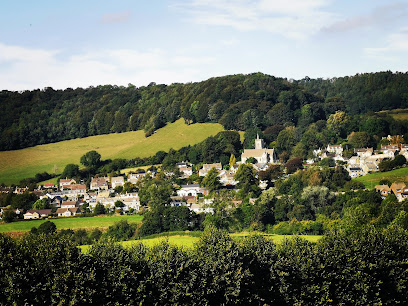
Nympsfield Long Barrow
Five millennia of mystery: a Neolithic burial mound where ancient ritual meets Cotswold legend.
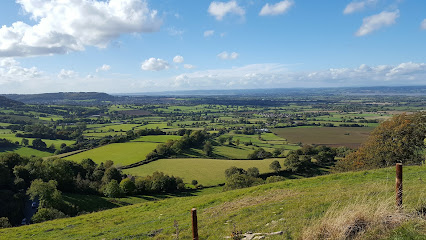
Bliss Tweed Mill
A striking Victorian tweed mill in Chipping Norton, blending industrial heritage with elegant architecture and scenic Cotswold views.

Cotswold Journeys
Explore the enchanting Cotswolds on expertly crafted walking tours with seamless logistics and charming local stays.

Unmissable attractions to see
Cotswolds AONB
Rolling hills, honey‑stone villages and timeless English charm in England’s largest Area of Outstanding Natural Beauty.
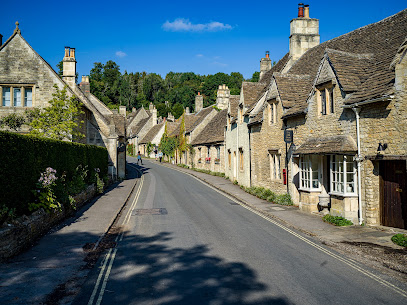
Blenheim Palace
Explore Blenheim Palace, a UNESCO World Heritage Baroque masterpiece with stunning gardens, exclusive 2025 experiences, and rich British history.
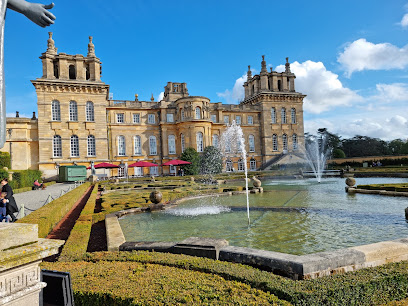
Cotswold Wildlife Park & Gardens
Explore 160 acres of immersive wildlife and stunning gardens at Cotswold Wildlife Park, where nature and adventure meet in the heart of the Cotswolds.

National Trust - Hidcote
Explore the enchanting Arts and Crafts garden rooms and sculptures of Hidcote Manor, a National Trust gem in the Cotswolds.
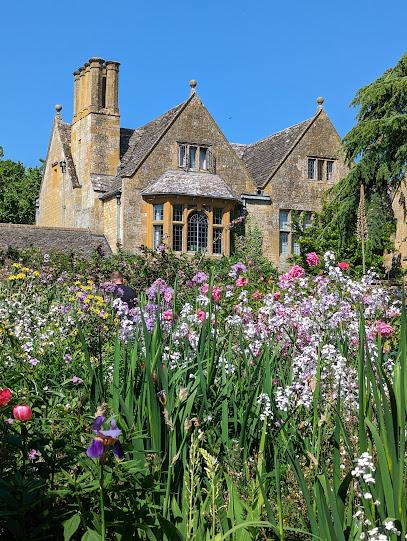
National Trust - Hidcote
Discover the enchanting Arts and Crafts garden of Hidcote, where outdoor rooms and vibrant plantings create timeless beauty in the Cotswolds.
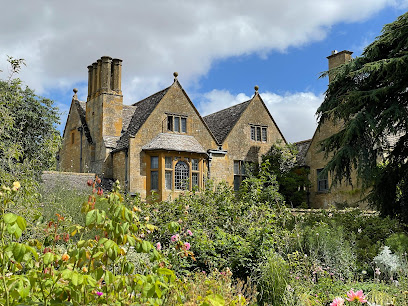
Birdland Park & Gardens
Meet England's only King Penguin breeding group and 500+ birds across nine acres of Cotswolds woodland.
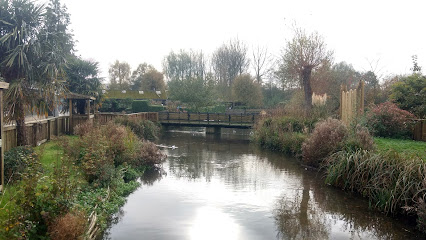
Crocodiles of the World
Explore the UK’s only crocodile zoo with over 130 crocodilians, immersive talks, and family-friendly wildlife encounters in Oxfordshire.
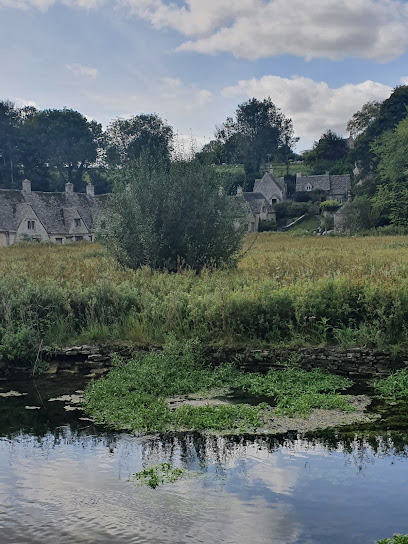
The Model Village
Step into a charming miniature world with the only Grade II listed model village in England, capturing Bourton-on-the-Water in exquisite 1930s detail.
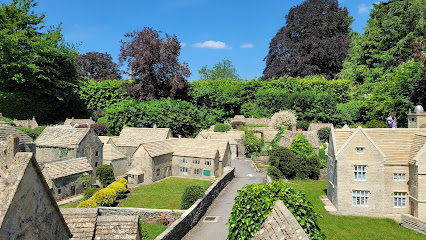
Sudeley Castle
Explore a Tudor treasure with royal tombs, award-winning gardens, and family adventures in the heart of the Cotswolds.

Cotswold Farm Park
Meet rare British farm breeds and experience authentic countryside learning in the heart of the Cotswolds.
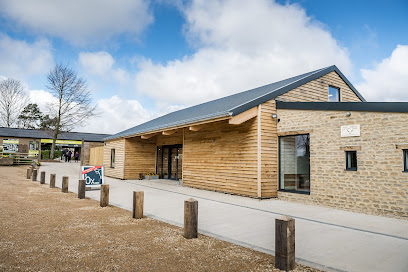
Tewkesbury Abbey
Explore Tewkesbury Abbey’s Norman splendor, medieval art, and rich history in the heart of Gloucestershire’s charming market town.
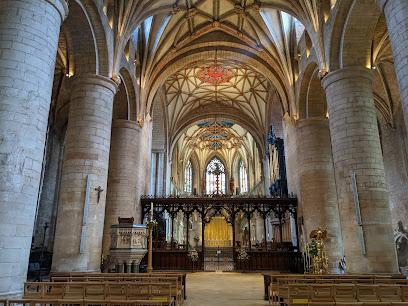
National Trust - Snowshill Manor and Garden
Explore a whimsical 16th-century manor and Arts and Crafts garden filled with the extraordinary collections of Charles Paget Wade in the heart of the Cotswolds.
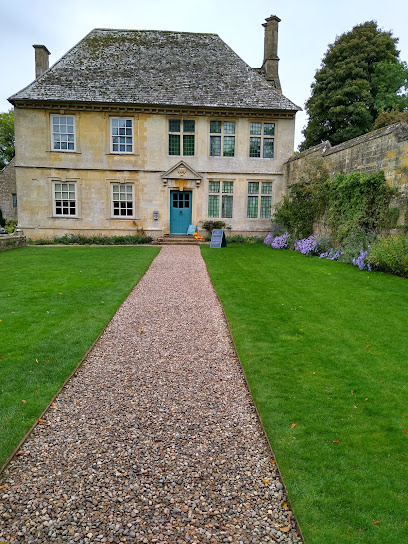
National Trust - Chedworth Roman Villa
Explore one of Britain’s grandest Roman villas with stunning mosaics, ancient ruins, and tranquil Cotswold countryside views.
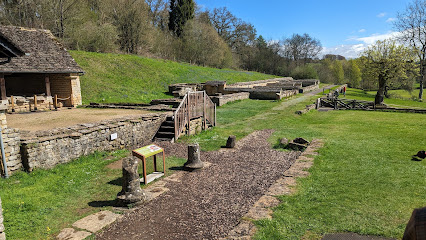
The Rollright Stones
Discover the ancient magic and sweeping views of the Rollright Stones, a timeless megalithic site on the Cotswold hills.
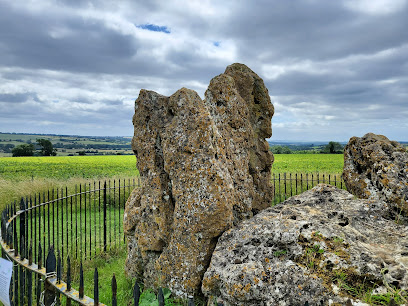
Painswick Rococo Garden
Discover the UK’s only complete rococo garden, where whimsical follies, vibrant blooms, and a playful maze await in a tranquil Cotswold valley.
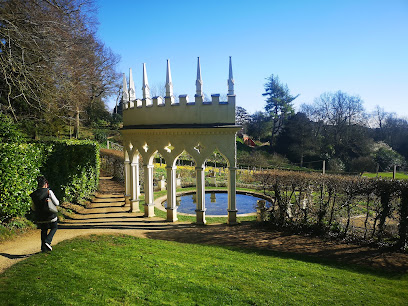
Essential places to dine
The Porch House
Step into England’s oldest inn, where medieval history meets refined British dining in the heart of the Cotswolds.
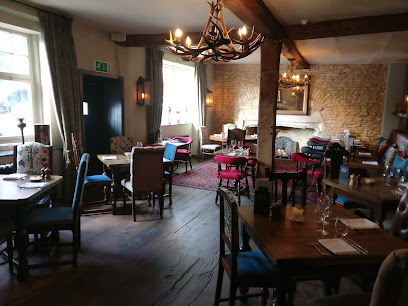
The Catherine Wheel
A family-run pub and inn in Bibury serving fresh local food with warm hospitality in the heart of the Cotswolds.
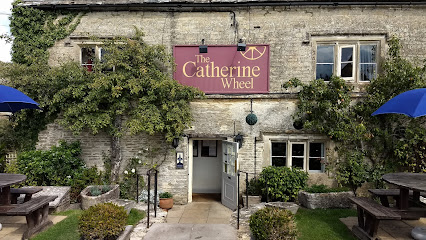
The Frogmill
Charming historic hotel with acclaimed British dining, cozy rooms, and tranquil gardens near Cheltenham in the heart of the Cotswolds.
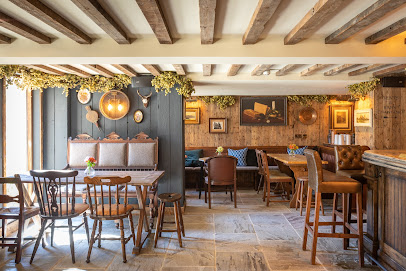
The Rose Tree Restaurant
Cozy riverside dining in a historic cottage offering classic British dishes with scenic views in the heart of Bourton-on-the-Water.
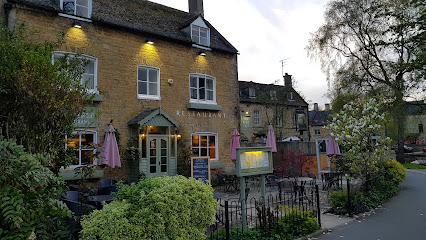
The Wild Rabbit
Charming Georgian inn in Kingham offering refined British cuisine, eco-conscious hospitality, and stylish countryside retreats in the heart of the Cotswolds.
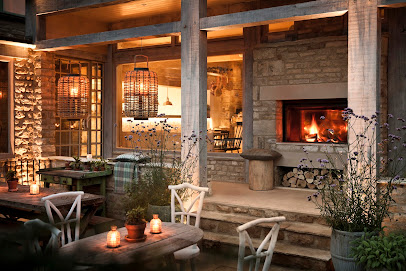
The Chequers, Cotswolds
A stylish Cotswold gastropub in Churchill, serving elevated pub classics in a warm, lively atmosphere with a lovely garden and a strong local following.

The Kingham Plough
A charming Cotswold village inn blending traditional character with modern British cuisine and stylish comfort in the heart of Kingham.

The Bell at Sapperton
Historic Cotswold pub and inn blending rustic charm with award-winning British cuisine and warm countryside hospitality.

The Ebrington Arms
A timeless Cotswold village pub offering rustic charm, gourmet dining, and cozy country accommodation in idyllic Ebrington.
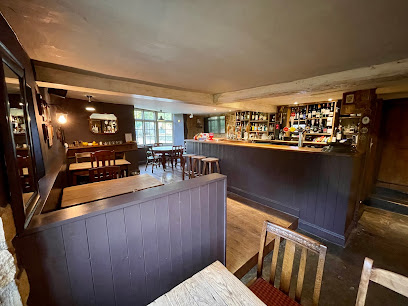
The Old Boathouse
Charming lakeside gastropub offering classic British fare and scenic views at Cotswold Water Park in South Cerney.
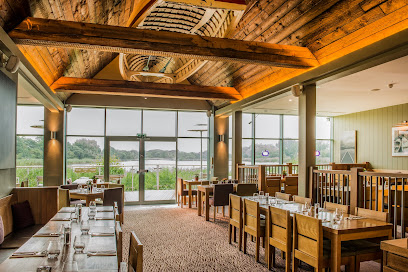
The Croft Restaurant
Charming riverside restaurant in Bourton-on-the-Water serving fresh, locally sourced English cuisine from breakfast to evening meals.
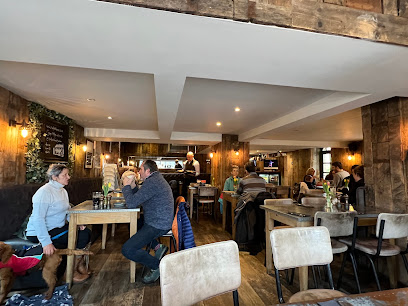
The Old Butchers
A family-run culinary haven in Stow-on-the-Wold, blending rustic charm with exceptional seafood and charcoal-grilled delights.
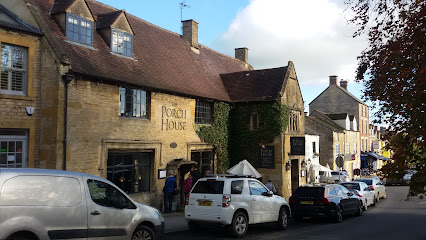
MBB BRASSERIE
Stylish modern British brasserie in Cirencester’s historic Corn Hall, serving classic and contemporary dishes in a vibrant open kitchen setting.
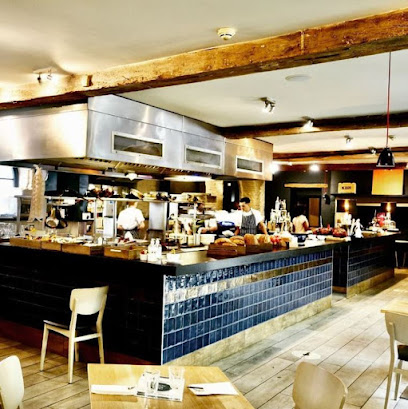
Petit Coco Bistro
Charming French bistro in Cheltenham offering authentic classics, cozy farmhouse decor, and a warm, intimate dining experience.
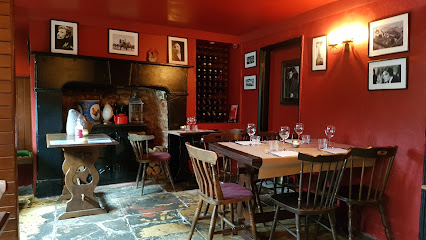
Purslane Restaurant
Intimate Cheltenham seafood restaurant showcasing inventive, seasonal British dishes with sustainable sourcing and warm, attentive service.
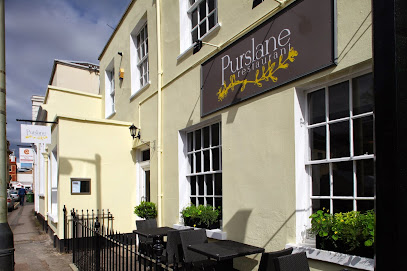
Markets, malls and hidden boutiques
The Cotswold Company (Flagship Store)
Step into a beautifully styled Cotswold home at The Cotswold Company’s flagship store in Stow-on-the-Wold, where timeless furniture and homewares come to life.
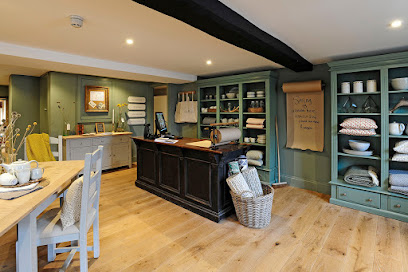
Oxford University Press Bookshop
Historic Oxford University Press Bookshop on High Street, a scholarly haven with a vast collection, now closed but rich in academic legacy.
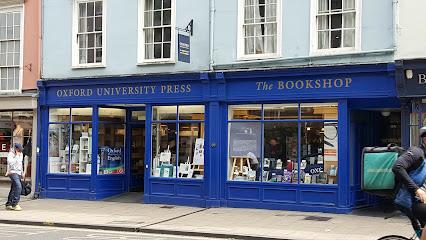
Cotswold Grey
Discover rustic elegance and expert interior design at Cotswold Grey, Moreton-in-Marsh’s premier home furniture and décor destination.
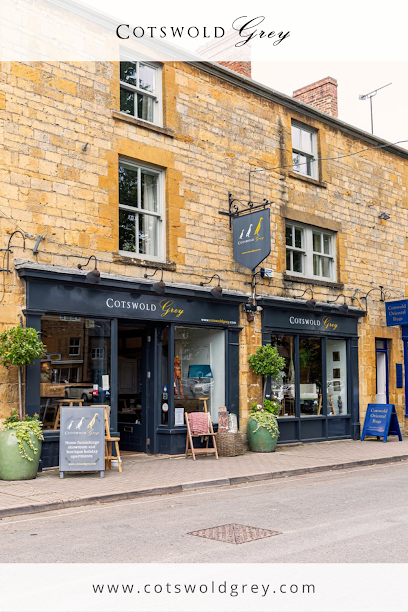
Highgrove Shop - Tetbury
Discover sustainably sourced artisan gifts and royal heritage at the elegant Highgrove Shop in Tetbury’s historic market town.
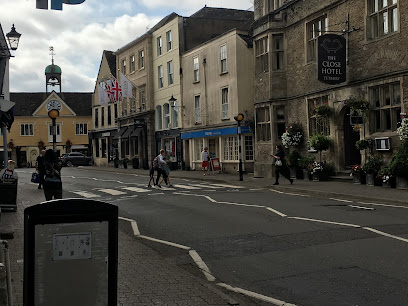
Cotswold Trading - Broadway
A stylish homewares and gift shop in the heart of Broadway, offering curated kitchenware, décor, and presents with a distinctly British flair.
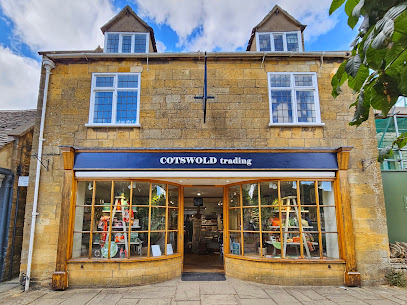
Cotswolds Distillery Shop
Discover the heart of Cotswolds spirits craftsmanship at the Broadway shop, home to award-winning whiskies and gins.
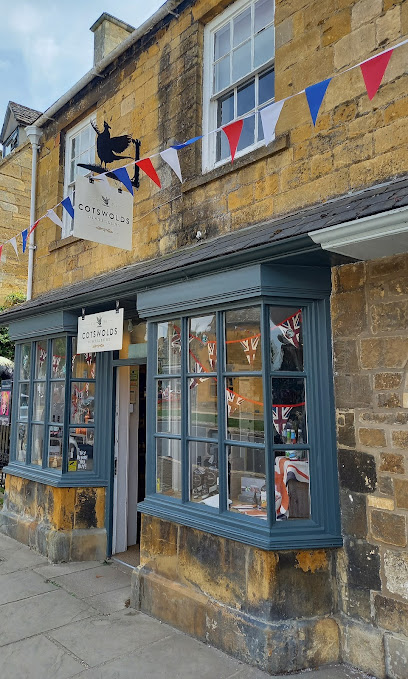
House of Wonders
Discover magic and unique treasures at Oxford’s House of Wonders, a captivating Harry Potter gift shop and local craft haven in the city center.
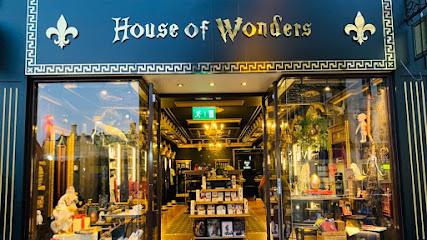
The Cotswold Shop
Discover handcrafted pottery and unique gifts in the heart of Bourton-on-the-Water’s charming Cotswold village.

Cotswold China & Cookware
Discover exquisite British chinaware and cookware in a charming boutique nestled in the heart of Bourton-on-the-Water.

Cotswold Hipster
Handcrafted artisan leather bags and stylish dog accessories blending vintage charm with modern functionality in Chipping Norton.
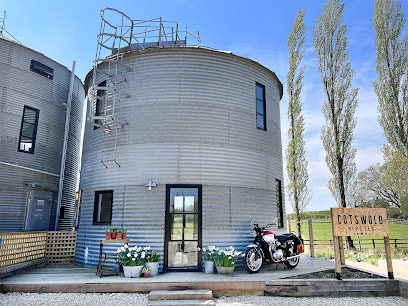
The Cotswold Stores
A welcoming convenience store in historic Northleach’s Market Place, offering local treats and everyday essentials daily from 8 AM to 8 PM.
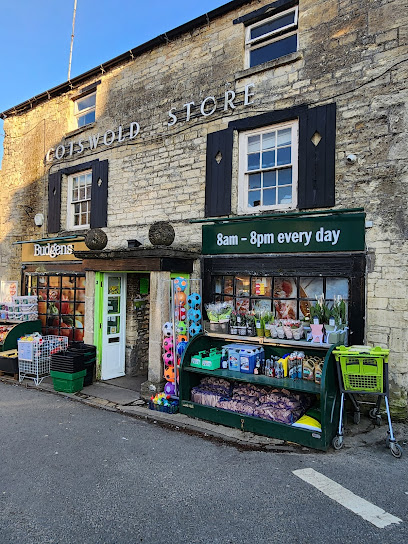
Betty & Violet
Vintage treasures and handmade goods celebrating independent makers in the heart of the Cotswolds.
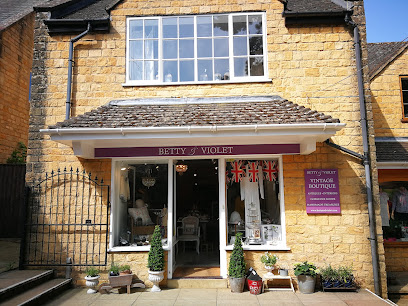
Whatever The Weather
Discover unique gifts and charming curiosities in a historic thatched cottage at the heart of Broadway’s picturesque High Street.
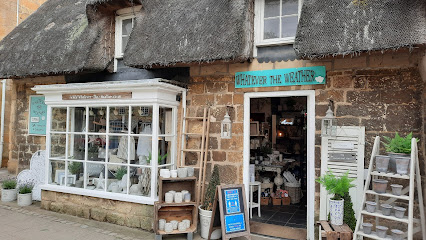
Tewkesbury Abbey Shop
Discover unique gifts and guidebooks steeped in history at the welcoming Tewkesbury Abbey Shop, nestled within the Abbey’s ancient walls.

The Cotswold Snug
Discover authentic Cotswold crafts and gifts in a cozy, welcoming shop nestled in the heart of Moreton-in-Marsh’s historic High Street.
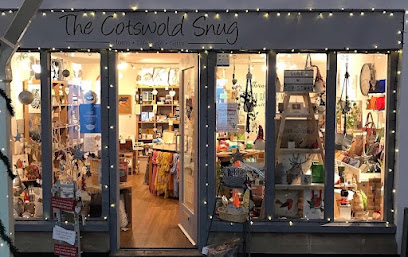
Essential bars & hidden hideouts
The Porch House
Experience England’s oldest inn, blending medieval history, cozy charm, and modern British dining in the heart of the Cotswolds.
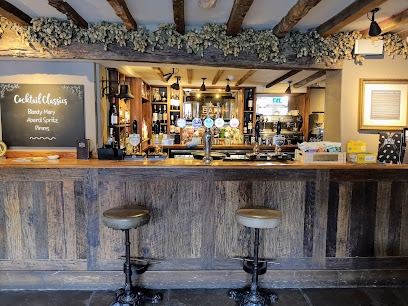
Copa of Cheltenham
Lively pub and restaurant on Regent Street offering great drinks, tasty pub food, and a welcoming atmosphere with live sports and a beer garden.
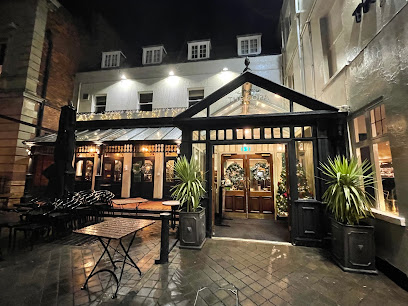
Sheep on Sheep Street
Historic charm meets modern comfort at The Sheep on Sheep Street, a vibrant inn and pub in the heart of Stow-on-the-Wold.
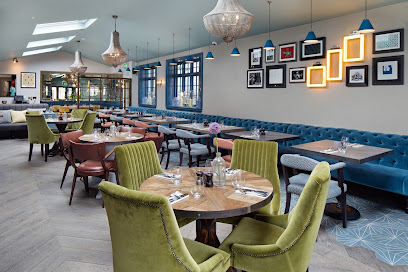
The Frogmill
Experience the charm of The Frogmill, a quintessential British pub in the heart of the Cotswolds, offering delicious food, local beers, and a cozy atmosphere.
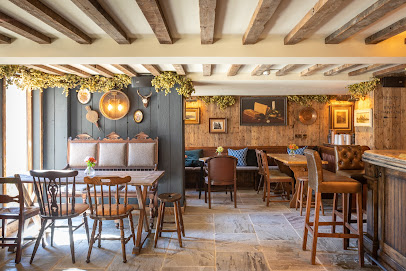
The Green Dragon Inn Pub & Shop
A historic 17th-century Cotswold inn blending rustic charm, fine dining, and countryside comfort in tranquil Cockleford near Cheltenham.
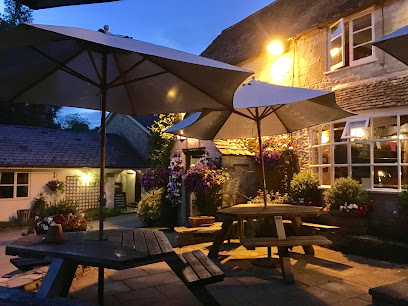
The Potting Shed Pub
Charming gastropub in Crudwell offering seasonal British cuisine, cozy interiors, and spacious gardens in the heart of the Cotswolds.
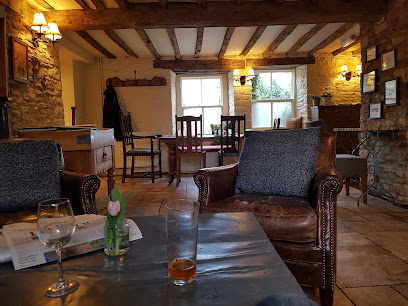
The Wild Rabbit
An elegant 18th-century inn in Kingham offering refined British cuisine, cozy rustic-chic stays, and a serene Cotswolds countryside experience.
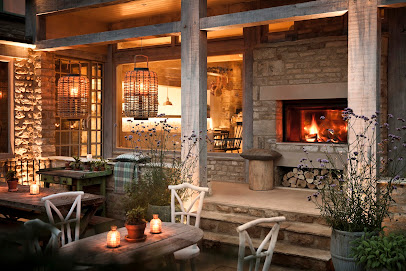
The Cotswold Arms
Historic 15th-century pub in Burford blending local ales, homemade food, live music, and a cozy beer garden for all ages.
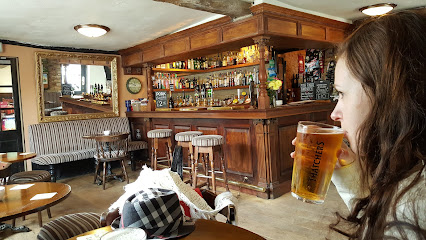
The Lion Inn
Historic 15th-century coaching inn in Winchcombe offering cozy rooms, hearty British fare, and a warm, inviting atmosphere in the heart of the Cotswolds.

Eight Bells Inn
Historic 14th-century inn with cozy rooms, classic pub fare, and a warm, dog-friendly atmosphere in the heart of Chipping Campden.
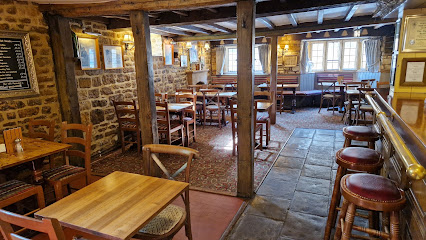
The Chequers, Cotswolds
A charming Cotswold gastropub in Churchill offering elevated pub fare, warm ambiance, and a welcoming village inn atmosphere.
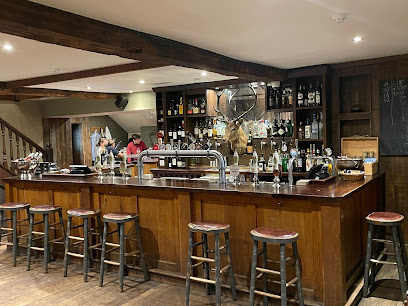
The Kingham Plough
Charming Cotswold pub blending rustic heritage with modern British dining and welcoming accommodation in the heart of Kingham village.

THE STUMP
A historic Cotswolds coaching inn blending rustic charm, acclaimed wood-fired pizzas, and cozy rooms for a quintessential English countryside experience.
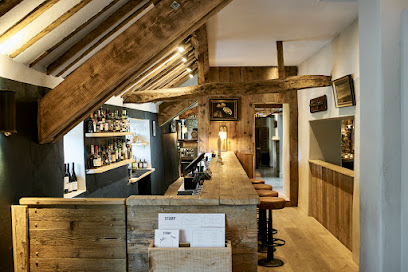
Snowshill Arms
Traditional Cotswold pub with warm hospitality, hearty fare, and a charming garden nestled in the scenic village of Snowshill.
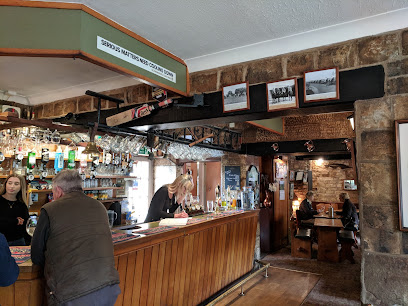
Local Phrases about The Cotswolds
-
- HelloOw do
[oh doh] - GoodbyeTara
[tah-rah] - YesAye
[eye] - NoNah
[nah] - Please/You're welcomeIf you please
[if yew pleez] - Thank youCheers
[cheers] - Excuse me/SorryBeggin' your pardon
[beggin yur par-dun] - How are you?How be you?
[how bee yew] - Fine. And you?All right. And you?
[awl rite. and yew] - Do you speak English?D'ya speak English?
[duh yuh speak ing-glish] - I don't understandI ain't got a clue
[I aint got uh clue]
- HelloOw do
-
- I'd like to see the menu, pleaseI'll av a gander at the menu, if you please
[I'll av uh gan-dur at the menu, if yew pleez] - I don't eat meatI don't touch flesh
[I don't tuch flesh] - Cheers!Cheers!
[cheers] - I would like to pay, pleaseI'll settle up, if you please
[I'll set-ul up, if yew pleez]
- I'd like to see the menu, pleaseI'll av a gander at the menu, if you please
-
- Help!Eh-up!
[ay-up] - Go away!Clear off!
[clear off] - Call the Police!Ring the bobbies!
[ring the bob-ees] - Call a doctor!Fetch a doctor!
[fetch a doc-tur] - I'm lostI'm all at sea
[I'm awl at see] - I'm illI'm poorly
[I'm poor-lee]
- Help!Eh-up!
-
- I'd like to buy...I'll take...
[I'll take...] - I'm just lookingI'm just browsing
[I'm just brows-ing] - How much is it?How much be that?
[how much bee that] - That's too expensiveThat's a bit steep
[That's uh bit steep] - Can you lower the price?Can you do it cheaper?
[Can yew do it cheeper]
- I'd like to buy...I'll take...
-
- What time is it?What o'clock be it?
[what uh-clock bee it] - It's one o'clockIt's one of the clock
[It's one of the clock] - Half past (10)Half ten
[Half ten] - MorningMornin'
[morn-in] - AfternoonArvo
[ar-vo] - EveningEvenin'
[even-in] - YesterdayYest'day
[yest-day] - TodayToday
[Today] - TomorrowTomorrer
[tom-or-er] - 1One
[wun] - 2Two
[too] - 3Three
[three] - 4Four
[four] - 5Five
[five] - 6Six
[six] - 7Seven
[seven] - 8Eight
[eight] - 9Nine
[nine] - 10Ten
[ten]
- What time is it?What o'clock be it?
-
- Where's a/the...?Where be the...?
[where bee the] - What's the address?What be the address?
[what bee the ad-dress] - Can you show me (on the map)?Can you point me in the right direction?
[Can yew point me in the rite di-reck-shun] - When's the next (bus)?When be the next (bus)?
[When bee the next (bus)] - A ticket (to ....)A ticket (to ....)
[A ticket (to ....)]
- Where's a/the...?Where be the...?
History of The Cotswolds
-
The Cotswolds, designated as an Area of Outstanding Natural Beauty (AONB), is known for its rolling hills and picturesque villages. Its history dates back to the Neolithic and Bronze Ages, evidenced by ancient stone circles such as the Rollright Stones. During the Roman occupation of Britain, the area saw the construction of Roman villas and roads, with notable examples like the Chedworth Roman Villa, showcasing intricate mosaics and bathhouses.
-
The Cotswolds flourished in the medieval period primarily due to the wool trade. The region's lush pastures were ideal for sheep farming, and Cotswold sheep, known as 'Cotswold Lions' for their golden fleece, became highly sought after. This wealth led to the construction of grand 'wool churches,' such as St. John the Baptist in Cirencester and St. James in Chipping Campden, which remain architectural marvels to this day.
-
The English Civil War (1642-1651) left its mark on The Cotswolds. The region saw several key battles and skirmishes, including the Battle of Stow-on-the-Wold in 1646, the last major engagement of the war. The war led to the fortification of towns and the construction of defensive structures, some of which, like Sudeley Castle, still stand today, offering a glimpse into this turbulent period.
-
The Agricultural Revolution of the 18th century brought significant changes to The Cotswolds. Enclosure acts transformed the landscape, consolidating small landholdings into larger farms. This period saw the development of new farming techniques and the introduction of new crops. Historic market towns like Moreton-in-Marsh and Tetbury became hubs for the exchange of agricultural goods.
-
The Victorian era was a time of both growth and decline for The Cotswolds. While some towns benefited from the arrival of the railways and new industries, others saw a decline in traditional crafts and agriculture. The wool industry, once the lifeblood of the region, struggled to compete with industrialized production. However, this period also saw the construction of notable buildings and the rise of tourism, as people sought the tranquility and beauty of the countryside.
-
In the 20th and 21st centuries, efforts to preserve the unique character and heritage of The Cotswolds have intensified. The designation of the area as an AONB in 1966 helped protect its landscapes from overdevelopment. Today, The Cotswolds is a major tourist destination, attracting visitors with its historic villages, stately homes like Blenheim Palace, and natural beauty. The Cotswold Way, a long-distance walking trail, offers a scenic route through the heart of this historic region.
The Cotswolds Essentials
-
The Cotswolds is located in south-central England, easily accessible by various modes of transport. The nearest major airports are Bristol Airport (BRS) and Birmingham Airport (BHX), both of which are approximately an hour's drive away. London Heathrow Airport (LHR) is also a viable option, about 1.5 to 2 hours by car. For those traveling by train, there are direct services from London Paddington to Moreton-in-Marsh, Kemble, and other Cotswold towns. National Express and local bus services also connect the Cotswolds to surrounding cities.
-
Within the Cotswolds, a car is the most convenient way to explore the region, allowing flexibility to visit the many charming villages and countryside attractions. Car rental services are available at major airports and train stations. Alternatively, local bus services and taxis are available, although less frequent in rural areas. Cycling is also a popular way to explore, with many dedicated bike routes and scenic trails.
-
The official currency in the United Kingdom is the British Pound Sterling (GBP). Credit and debit cards are widely accepted throughout the Cotswolds, including in hotels, restaurants, and shops. However, it is advisable to carry some cash, especially when visiting smaller villages and local markets. ATMs are available in most towns, but it is wise to withdraw sufficient cash before heading to more remote areas.
-
The Cotswolds is generally a very safe area with low crime rates. However, it is always advisable to take standard precautions, such as keeping valuables secure and being aware of your surroundings. There are no specific high-crime areas targeting tourists, but it is recommended to avoid walking alone late at night in unfamiliar places.
-
In case of emergency, dial 999 or 112 for immediate assistance from police, fire, or medical services. Most towns have local police stations and medical facilities. It is advisable to have travel insurance that covers medical emergencies. Pharmacies are available in larger towns, where you can purchase over-the-counter medications for minor health issues.
-
Fashion: Do dress comfortably and in layers, as the weather can be unpredictable. Avoid overly casual attire when dining in upscale restaurants. Religion: Do respect local customs, especially when visiting churches. Public Transport: Do be courteous to bus drivers and fellow passengers. Don’t occupy priority seats meant for elderly or disabled passengers. Greetings: Do greet people with a simple 'Hello' or 'Good morning.' A handshake is appropriate in more formal settings. Eating & Drinking: Do try local specialties and be open to traditional British cuisine. Don’t forget to book ahead for popular pubs and restaurants, especially on weekends.
-
To experience the Cotswolds like a local, visit the weekly farmers' markets in towns like Cirencester and Stroud, where you can buy fresh produce and artisanal goods. Engage with locals in village pubs, which are often the heart of the community. Don’t miss exploring the lesser-known villages and walking the many public footpaths that crisscross the countryside. For a unique experience, attend local events and festivals, such as the Cheltenham Literature Festival or the Tetbury Woolsack Races.
Nearby Cities to The Cotswolds
-
Things To Do in Stratford-upon-Avon
-
Things To Do in Bath
-
Things To Do in Bristol
-
Things To Do in Birmingham
-
Things To Do in Windsor
-
Things To Do in Cardiff
-
Things To Do in London
-
Things To Do in Nottingham
-
Things To Do in Cambridge
-
Things To Do in Chester
-
Things To Do in Sheffield
-
Things To Do in Manchester
-
Things To Do in Liverpool
-
Things To Do in Leeds
-
Things To Do in York













